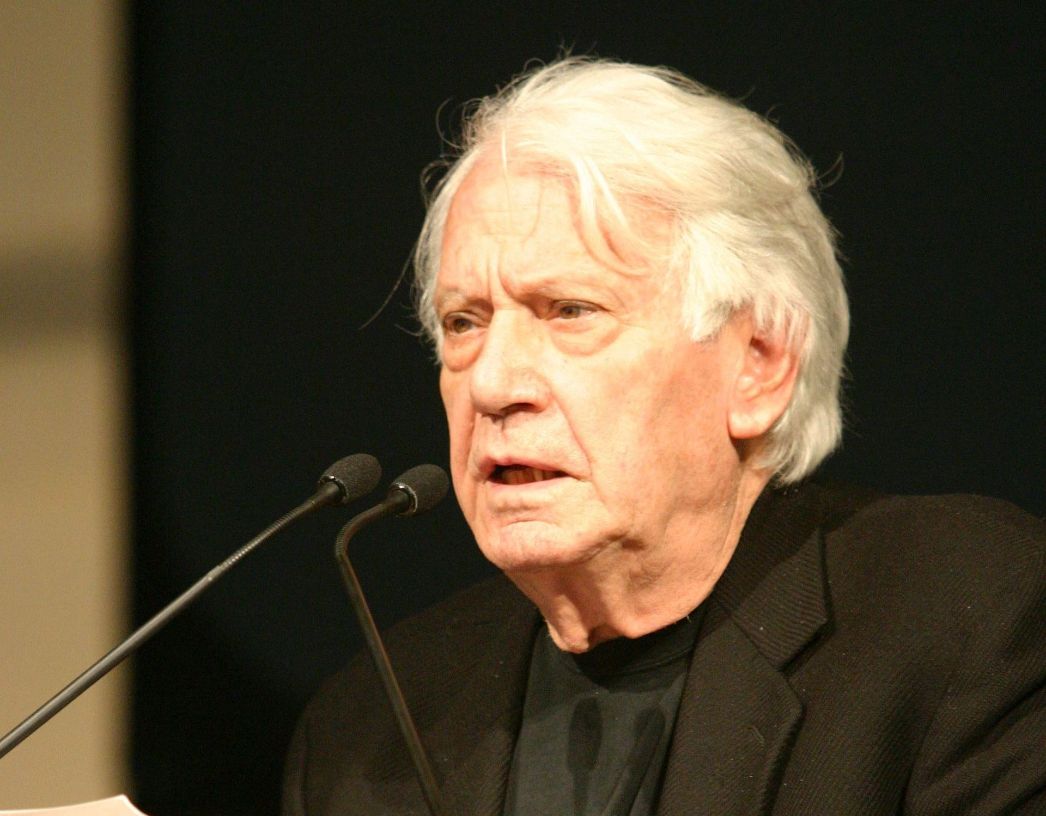Transcript
Narrator Spain 1936: When the Spanish Civil War broke out, the twelve-year-old Jorge Semprún lived with his father and his six brothers and sisters in Madrid. His father was a professor at the university and a politically active left-wing liberal. The family was compelled to flee Spain.
In exile in France, Jorge Semprún earned his A levels, became a student at the Sorbonne University in Paris and joined the Communists. In German-occupied France, this led him to the resistance group Francs-tireurs et partisans. He lived in the underground. The group obtained weapons from Allied parachute airdrops and carried out attacks on railway trains. After an attack on a Wehrmacht ammunition train, Jorge Semprún was arrested by the Gestapo. He later wrote:
Jorge Semprún “It was noon, more or less. Two days earlier, we had blown up a Wehrmacht ammunition train and one of our group had disappeared. … I crossed the courtyard to the building where the kitchen was located: I wanted Irène to make me a cup of coffee.
The only problem was, we had a visit from the Gestapo.
I heard Irène’s voice and saw, next to her, standing in front of me, a guy in a raincoat who had kept his hat on. He made a kind of face when he saw me, revealing a bunch of gold teeth in his mouth. A bit further away was a shocked young woman. But I sensed another, closer presence to my right, a bit behind me. Instinctively I turned around, trying in the process to quickly pull the revolver I had shoved under my belt upon waking.
I didn’t manage to pull it out; the clip got caught on my leather belt. Something unexpected happened. Exactly in the instant I managed to free the clip of my revolver, the guy from the Gestapo, rather than shooting, turned his heavy automatic around, grabbed it by the barrel and struck me on the head with all his strength. Undoubtedly a good professional reflex. A dead man doesn’t talk, and they were definitely planning to get me to talk.”
Narrator Semprún was tortured. The Gestapo transferred him from one prison to the next, and finally to Compiègne, the internment and deportation camp. In January 1944 he was deported to the Buchenwald concentration camp. The long train ride in an overcrowded wagon would later serve him as the point of departure for the story he tells in his first novel. In Buchenwald, Spanish and German inmates helped him. He became a clerk in the labour administration department and belonged to the illegal group of Spanish Communists with whom he occupied the camp after the SS fled.
Back in Paris, Jorge Semprún worked for the UNESCO as a translator, participated in resistance against the Franco regime and travelled to Spain several times under a false name. Later he withdrew from the Communist Party. As a writer he focussed on the dictatorships of the twentieth century. His first novel is entitled The Long Voyage. Like the majority of his later books, it is about his experience of the concentration camp and has been published in many languages.


